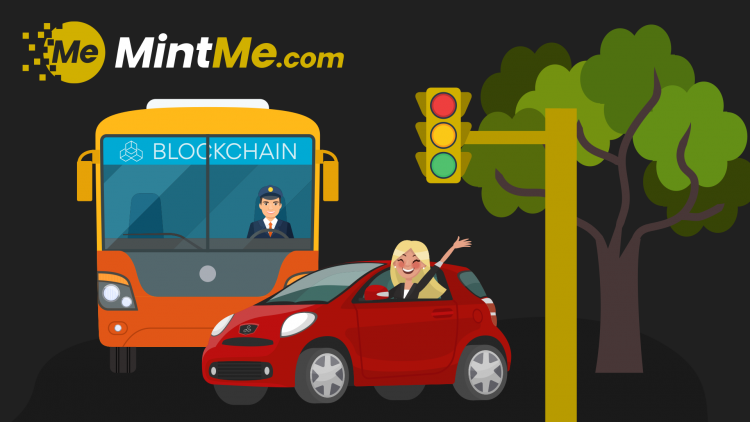Mintme News

The automotive industry is on the cusp of a technological revolution, with blockchain technology poised to disrupt the industry in significant ways. From supply chain management to vehicle ownership and data management, blockchain has the potential to transform the way we think about transportation. In this article, we will explore the ways in which blockchain is changing the automotive industry and what the future may hold.
One of the primary areas in which blockchain is disrupting the automotive industry is supply chain management. Blockchain provides a secure, transparent, and immutable ledger that allows for the tracking and verification of every step in the supply chain. This can be particularly important in the automotive industry, where parts and components are often sourced from all over the world. Blockchain can help ensure that these parts and components are authentic, high-quality, and ethically sourced, reducing the risk of fraud and ensuring that vehicles are safe and reliable.
Blockchain is also transforming the way we think about vehicle ownership. Traditionally, vehicle ownership has been centralized, with titles and registration managed by governments and financial institutions. However, with blockchain, ownership can be decentralized, with smart contracts used to manage ownership and transfer of vehicles. This can provide greater security and transparency for buyers and sellers, as well as reducing the cost and complexity of traditional vehicle ownership.
Another area in which blockchain is transforming the automotive industry is data management. As vehicles become increasingly connected and autonomous, they generate vast amounts of data, from sensor readings to location data to driver behavior. Blockchain can provide a secure and decentralized way to store and manage this data, allowing for greater privacy and control for vehicle owners and drivers. It can also enable new business models, such as data marketplaces, where vehicle owners can sell their data to interested parties in a secure and transparent way.
Finally, blockchain is enabling new forms of mobility and transportation. Decentralized autonomous organizations (DAOs) can be used to create peer-to-peer networks for sharing vehicles and rides, reducing the need for traditional car ownership and reducing congestion on roads. These networks can also be used to enable new forms of mobility, such as electric scooters and bikes, which can be rented and paid for using cryptocurrency. Blockchain can provide the secure and transparent ledger needed to manage these networks and ensure that they are operating fairly and efficiently.
In conclusion, blockchain is transforming the automotive industry in significant ways, from supply chain management to vehicle ownership and data management. As the technology continues to develop, we are likely to see even more innovative applications in the world of transportation, creating new opportunities for mobility and reducing the environmental impact of traditional vehicle ownership. The future of transportation is likely to be more decentralized, connected, and sustainable, and blockchain will play a key role in making this future a reality.
Isaac Vitales